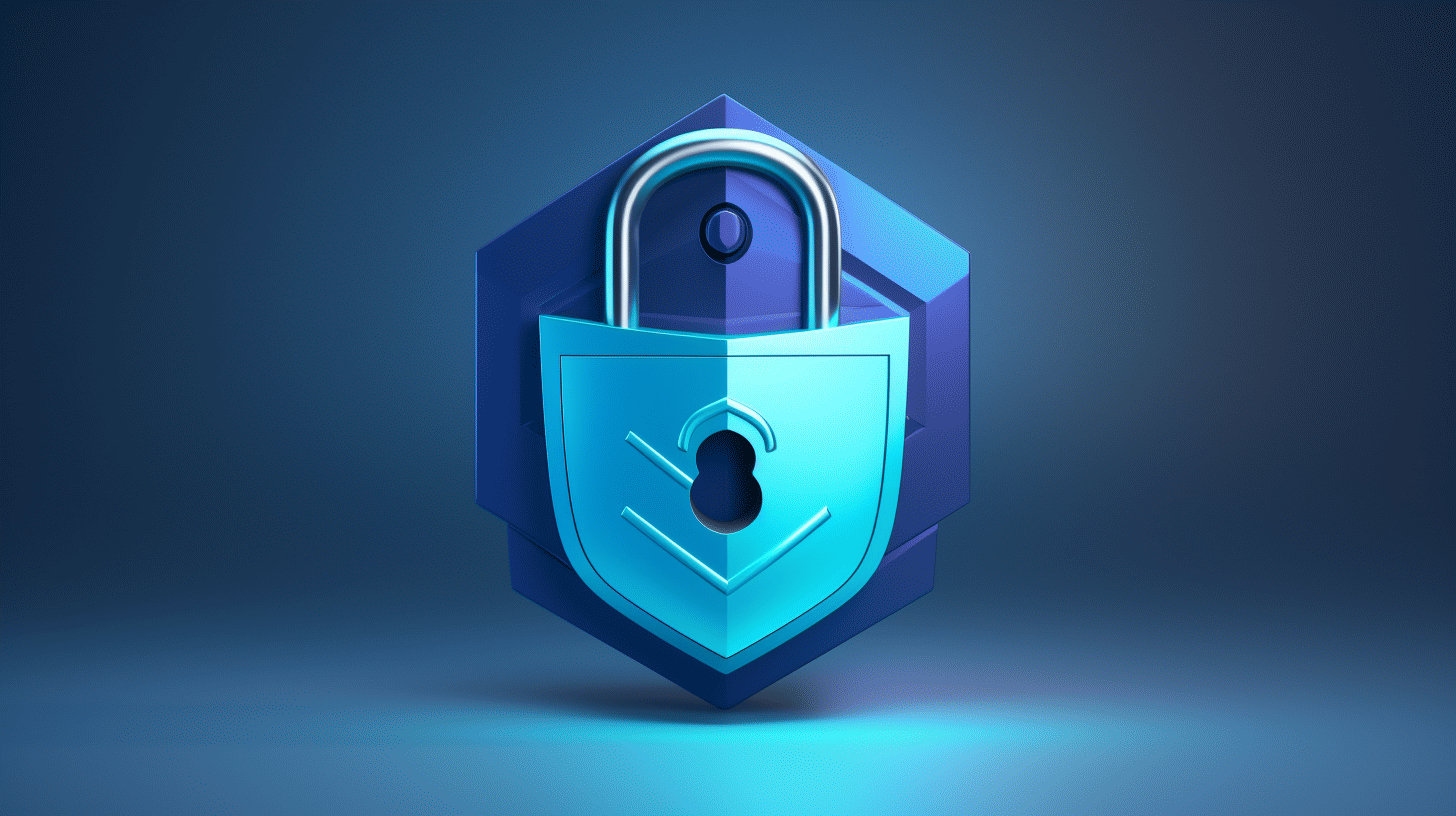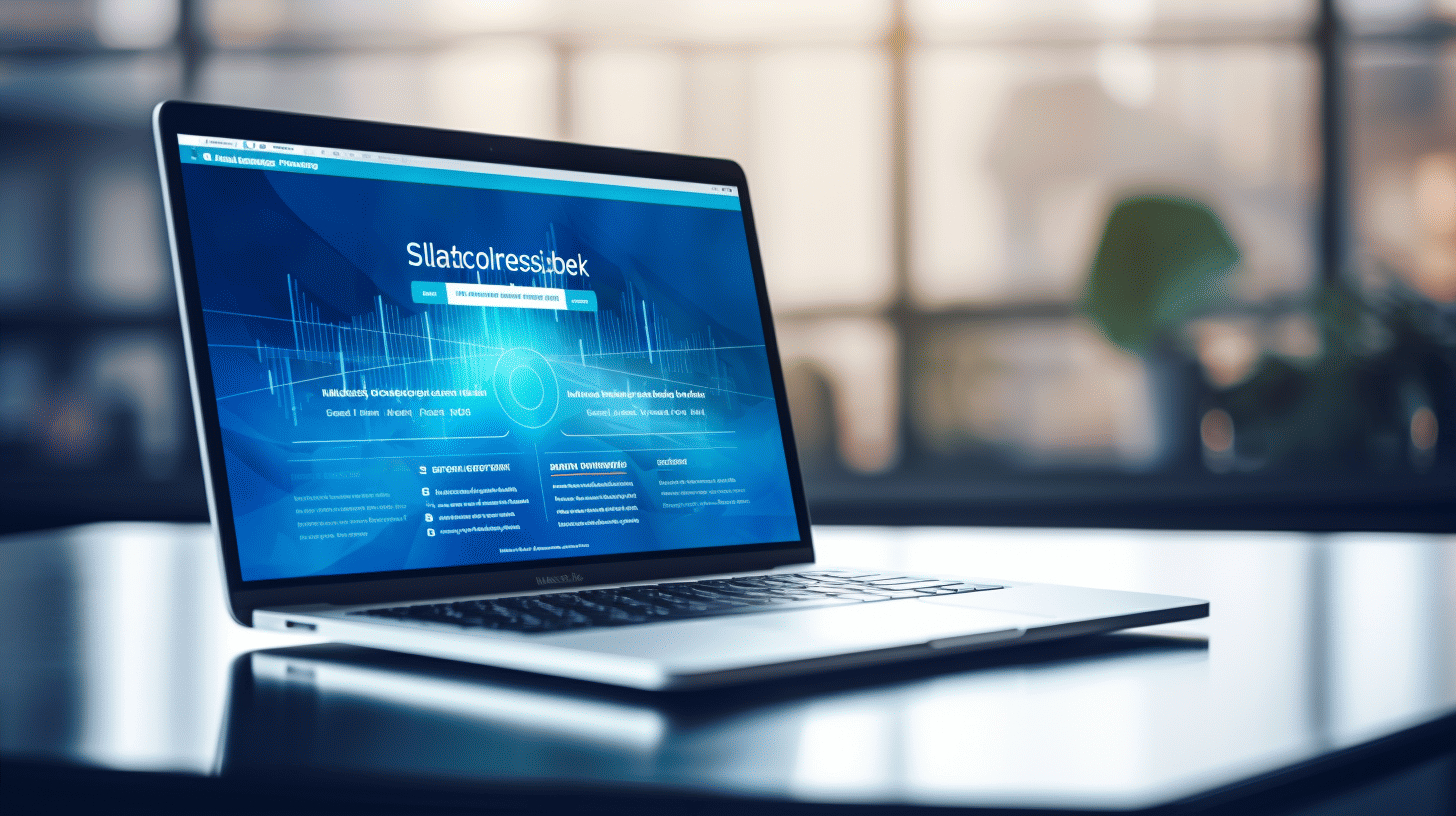在 WordPress 上经营一家网店可能是一件令人兴奋且有益的事情。但是,确保网站的安全性和可靠性对于保护客户的宝贵信息并保持值得信赖的在线形象至关重要。在本文中,我们将探讨您可以实施的各种措施来保护您的 WordPress 网店,从定期更新和强大的身份验证到安全插件和 SSL 证书。让我们深入了解如何加强您的网站以抵御潜在威胁。
说到网络安全,预防是关键。通过采取主动措施并防范潜在漏洞,您可以为自己和客户创建一个安全的环境。有了正确的工具和做法,您就可以高枕无忧,因为您的 WordPress 在线商店受到保护,免受网络威胁。那么,让我们开始探索确保 WordPress 在线商店安全性和可靠性的基本步骤。
WordPress 核心、主题和插件的定期更新
WordPress 是一款功能强大且用途广泛的内容管理系统 (CMS),为全球数百万个网站提供支持。与任何软件一样,保持 WordPress 更新至关重要,以确保最佳性能、安全性和可靠性。WordPress 核心、主题和插件会定期发布更新,提供新功能、错误修复和安全增强功能。
为什么更新很重要?
更新对于维护 WordPress 网站的完整性和安全性起着至关重要的作用。这就是为什么保持所有内容最新如此重要的原因:
- 安全: WordPress 是黑客的热门目标,因此安装最新的安全补丁至关重要。更新通常会修复可能被恶意行为者利用的漏洞,保护您的网站免受潜在威胁。
- 兼容性: 插件和主题由不同的开发人员开发,更新可确保它们与最新版本的 WordPress 兼容。未能更新可能会导致兼容性问题,从而导致插件冲突和网站故障。
- 错误修复: 更新通常包括修复问题并提高 WordPress 的整体稳定性。通过保持更新,您将获得更流畅的用户体验和更少的技术问题。
- 新功能: 更新引入了新特性和功能,让您能够利用最新的工具和网站改进。这些更新可能会增强您网站的性能和速度,或添加令人兴奋的新功能,以帮助您吸引受众。
如何更新 WordPress
更新 WordPress、主题和插件的过程非常简单。以下是分步指南:
- 备份您的网站: 在进行任何更新之前,最好先备份您的网站。这可确保您在更新过程中出现任何问题时有一个还原点。
- 更新 WordPress 核心: 首先更新 WordPress 核心。您可以导航到 WordPress 仪表板并在“更新”选项卡下检查可用的更新。如果有可用更新,只需单击“立即更新”按钮即可。
- 更新主题和插件: 更新核心后,继续更新主题和插件。与更新核心类似,您可以在 WordPress 仪表板中检查可用的更新,并单独更新每个项目。
- 验证兼容性: 更新完成后,请务必测试网站的功能,以确保一切正常运行。检查更新是否导致任何兼容性问题或冲突。
为了简化更新过程并确保及时安装更新,请考虑使用 WordPress 安全自动化解决方案。这些工具可以帮助您自动化更新过程,确保您的网站自动保持安全并保持最新状态。 WordPress 安全的自动化解决方案 旨在简化管理更新的任务,节省您的时间和精力,同时保护您的网站。
请记住,忽视更新 WordPress 核心、主题和插件会使您的网站面临风险。通过及时更新,您可以确保网站的安全性和兼容性,并充分利用最新的特性和功能。因此,请优先定期更新您的 WordPress 安装,以确保网站体验顺畅可靠。
增强身份验证和密码安全性
在当今的数字世界中,网络威胁日益复杂,确保我们的在线帐户的安全比以往任何时候都更加重要。防止未经授权访问的第一道防线之一是拥有强密码。但是,仅依靠密码已远远不够。本节将探讨可以大大增强身份验证和密码安全性的另外两种措施:双因素身份验证和密码管理器。
强密码
创建强密码对于保护您的帐户免受攻击至关重要。在创建强密码时,请牢记以下提示:
- 密码越长:密码越长,攻击者越难破解。密码长度至少为 8 到 12 个字符。
- 使用混合字符:在密码中包含大写和小写字母、数字和符号的组合。
- 避免使用常用短语和个人信息:不要使用容易猜到的信息,例如您的姓名、出生日期或“password123”等常用短语。
- 不要重复使用密码:多个帐户使用相同的密码会增加安全漏洞的风险。为每个帐户创建唯一的密码。
- 考虑使用密码短语:密码短语是由多个单词组成的较长短语。它们比复杂的密码更容易记住,也更难破解。例如,“correcthorsebatterystaple” 是一个强密码短语。
双重身份验证
仅凭密码就可能容易受到各种攻击。双重身份验证 (2FA),也称为多重身份验证,通过要求用户提供额外的证据来验证其身份,增加了一层额外的安全保障。这可能是您知道的东西(例如密码)、您拥有的东西(例如智能手机)或您本身的东西(例如指纹)。
2FA 的工作原理如下:
- 您像平常一样输入用户名和密码。
- 然后需要第二个因素来证明您的身份。这可能是通过短信、指纹扫描或安全令牌发送到您的智能手机的唯一代码。
- 一旦成功提供第二个因素,即可授予您帐户的访问权限。
即使密码被泄露,实施双重身份验证也能大大降低未经授权访问的风险。许多流行的在线服务(如 Google、Facebook 和 Microsoft)都已提供 2FA 选项。它易于设置,并提供额外的保护层,值得您采取额外措施。
密码管理器
管理多个复杂密码可能很困难。这时密码管理器就派上用场了。密码管理器是一种方便安全的工具,可以存储和加密您的密码。它可以帮助您为每个帐户生成强大而独特的密码,并在您需要登录时自动填写密码。
使用密码管理器的主要好处包括:
- 简化的密码管理:您只需记住一个主密码即可访问管理器中安全存储的所有其他密码。
- 强密码生成:密码管理器可以生成难以猜测或破解的复杂密码。
- 安全的密码存储:密码管理器使用强加密来保护您的密码,确保它们受到保护。
- 自动填充功能:管理器可以自动填写您的登录凭据,节省您的时间并降低登录时出错的风险。
一些流行的密码管理器包括 LastPass、Dashlane 和 1Password。这些工具可作为浏览器扩展或独立应用程序使用,方便在不同设备上使用。
通过采用这些额外的安全措施(强密码、双因素身份验证和密码管理器),您可以显著增强在线帐户的身份验证和密码安全性。采取主动措施保护您的信息将有助于保护您的数字身份,并在日益互联的世界中让您安心。
实施安全插件和 SSL 证书
在当今的数字时代,安全是网站所有者的首要关注点。随着网络威胁和攻击的不断增加,实施强大的安全措施来保护您的网站及其访问者至关重要。安全插件和 SSL 证书是可以大大增强您网站安全性的两个基本工具。
WordPress 安全插件
保护 WordPress 网站最有效的方法之一是安装安全插件。这些插件提供各种功能,可帮助保护您的网站免受各种在线威胁。以下是使用 WordPress 安全插件的一些主要好处:
- 恶意软件扫描和删除: 安全插件可以定期扫描以检测您网站上的任何恶意代码或恶意软件。通过识别和删除这些威胁,您可以确保您的网站保持安全。
- 防火墙保护: 安全插件可以提供防火墙,作为您的网站和潜在攻击者之间的屏障。它监控传入和传出的网络流量,阻止任何可疑或有害的请求。
- 登录保护: 随着暴力攻击的日益盛行,采取措施保护网站的登录页面至关重要。安全插件通常包括登录锁定、双因素身份验证和 CAPTCHA 等功能,以防止未经授权的访问。
- 漏洞修补: 安全插件会定期更新其数据库,以包含黑客可能利用的最新安全漏洞。通过保持插件和主题的更新,您可以最大限度地降低成功攻击的风险。
在选择 WordPress 安全插件时,有多种选择。为了帮助您做出明智的决定,您可以参考我们关于 顶级 WordPress 安全插件。它比较了 Wordfence、MalCare 等流行插件,提供了有价值的见解和比较,以帮助您找到最适合您网站安全需求的插件。
SSL 证书和 HTTPS
网站安全的另一个重要方面是实施 SSL 证书并启用 HTTPS(超文本传输协议安全)。以下是 SSL 证书对您的网站至关重要的原因:
- 数据加密: SSL 证书会加密网站与访客之间传输的数据,确保数据安全,不被窃听或篡改。这对于处理敏感信息(如个人信息或金融交易)的网站尤其重要。
- 信任与可信度: SSL 证书提供视觉指示,例如挂锁图标或绿色地址栏,可向访问者保证网站是安全的。这有助于与访问者建立信任并提高网站的可信度。
- 排名提升: 像 Google 这样的搜索引擎会优先考虑启用了 HTTPS 的网站,从而略微提高它们的排名。这意味着通过实施 SSL 证书,您不仅可以提高网站的安全性,还可以潜在地提高其搜索引擎可见性。
要在您的网站上实施 SSL 证书,您可以联系您的托管服务提供商或探索第三方证书颁发机构。许多托管服务提供商将 SSL 证书作为其托管套餐的一部分提供,使网站所有者的设置过程更加轻松。
请记住,虽然安全插件和 SSL 证书可以大大增强您网站的安全性,但重要的是要通过最佳实践(例如定期备份、强密码和用户访问管理)来补充这些措施。通过采取多层次的网站安全方法,您可以显著降低安全漏洞的风险,并保护您的网站及其访问者免受潜在威胁。
监控并防范可疑活动
随着网络威胁和恶意攻击日益猖獗,企业和个人都必须优先监控和保护其在线资产。可疑活动包括黑客攻击、数据泄露、恶意软件注入和 DDoS 攻击,所有这些都可能对您网站的安全和声誉造成严重后果。
Web 应用程序防火墙
打击可疑活动的一个有效工具是 Web 应用程序防火墙 (WAF)。WAF 可充当您的网站与潜在威胁之间的保护屏障,主动监控传入流量并阻止任何利用 Web 应用程序中漏洞的恶意企图。
这就是为什么将 WAF 纳入你的安全策略至关重要:
- 威胁检测: WAF 有助于识别和阻止各种类型的威胁,包括 SQL 注入、跨站点脚本 (XSS) 攻击和暴力破解尝试。通过实时分析 Web 请求,它可以区分合法流量和恶意活动,确保您的网站保持安全。
- 虚拟修补: 即使您尚未将 Web 应用程序更新到最新版本,WAF 也可以提供虚拟补丁来防范已知漏洞。如果您使用的是 WordPress 等内容管理系统 (CMS),那么此功能尤其有用,因为更新延迟可能会让您的网站暴露在外。
- 用户友好配置: 现代 WAF 解决方案在设计时充分考虑了用户友好性,因此您可以轻松配置和自定义安全规则以满足您的特定需求。您可以将受信任的 IP 地址列入白名单,阻止可疑的用户代理,甚至可以设置速率限制以防止暴力攻击。
作为全面安全策略的一部分,采用 Web 应用程序防火墙可以显著增强您的网站对可疑活动的防护。无论您经营的是电子商务商店、博客还是公司网站,投资强大的 WAF 解决方案都可以让您高枕无忧,并保障您的在线形象。
网站监控
虽然 WAF 是第一道防线,但持续的网站监控对于早期威胁检测和及时响应同样重要。通过主动监控网站的性能和安全性,您可以在可疑活动或漏洞造成重大损害之前识别它们。
以下是定期网站监控的一些好处:
- 实时警报: 通过设置监控警报,当您的网站出现问题时,您可以立即收到通知。无论是性能突然下降、恶意软件感染还是异常流量模式,您都可以立即采取行动来降低风险并防止进一步损害。
- 正常运行时间监控: 网站停机可能导致收入损失、声誉受损和访客失望。通过采用网站监控解决方案,您可以跟踪网站的正常运行时间,并在网站离线时收到即时警报。这让您有机会及时解决问题并最大限度地减少对业务的影响。
- 性能优化: 监控工具通常可以提供有关网站性能的宝贵见解,包括页面加载速度和服务器响应时间。通过分析这些数据,您可以识别瓶颈、优化网站性能并提供增强的用户体验。
通过将 Web 应用程序防火墙与常规网站监控相结合,您可以主动保护您的网站并有效应对可疑活动。无论是阻止恶意请求还是识别潜在漏洞,这些措施都有助于确保您的在线资产保持安全、用户数据受到保护并且您的声誉保持完好。
要了解有关 Web 应用程序防火墙如何帮助增强网站安全性的更多信息,请访问 WP防火墙.
定期备份以保护数据
在当今的数字世界中,数据在企业和个人的成功中都发挥着至关重要的作用,定期备份的重要性怎么强调也不为过。无论您是运营 WordPress 网站的企业主还是维护个人博客的个人,数据的安全和保护都应该是重中之重。毕竟,数据丢失可能以各种方式发生 - 从硬件故障和网络攻击到人为错误和自然灾害。为了防范这些潜在威胁,定期备份至关重要。
网站备份
对于网站所有者来说,网站备份对于确保其在线状态的保护和可用性尤为重要。网站备份本质上是您网站的所有文件、数据库和配置的副本。如果发生数据丢失,备份可让您将网站恢复到以前的状态,从而免去从头开始的艰巨任务。
为什么网站备份很重要?
- 数据丢失预防: 网站备份就像一张安全网,可以保护您免受数据丢失的毁灭性影响。无论是由于硬件故障、网络攻击还是意外删除,拥有最近的备份都可以确保您可以快速恢复网站的数据。
- 快速恢复: 通过定期备份,您可以迅速将网站恢复到工作状态,最大限度地减少停机时间并确保您的用户可以不间断地继续访问您的内容。
- 安心: 知道您有备份可以让您高枕无忧,即使在最坏的情况下,您也有可靠的解决方案可以依靠。
商业关怀对 WordPress 的重要性
手动管理备份可能是一项繁琐且耗时的任务,尤其是对于肩负重任的繁忙企业主而言。这时托管 WordPress 服务(例如 Business Care for WordPress)就派上用场了。
WordPress 的商业关怀 为 WordPress 网站提供全面支持,包括定期备份。通过将您的网站委托给托管服务,您可以获得以下好处:
- 自动备份: 使用 Business Care for WordPress,您的网站会定期自动备份,确保您的数据始终受到保护。
- 异地存储: 除了创建备份之外,Business Care for WordPress 还将这些备份存储在安全的异地位置,保护您的数据免受可能在主要位置发生的物理灾难的影响。
- 轻松恢复: 如果您需要恢复网站,Business Care for WordPress 可让这个过程变得简单且轻松。只需点击几下,您就可以让网站重新启动并运行。
不要等到为时已晚。定期备份是数据保护的重要组成部分。无论您选择手动处理备份还是选择托管服务(如 WordPress 的 Business Care),都应优先考虑数据的安全性和完整性。请记住,今天的主动措施可以为您免去明天的麻烦和潜在损失。
选择可靠的网络托管服务提供商
在启动网站时,您要做出的最重要决定之一就是选择可靠的网络托管服务提供商。您的托管服务提供商不仅会决定您网站的性能和可访问性,还会在其安全性方面发挥重要作用。有这么多选择,找到合适的选择可能令人不知所措。在本节中,我们将探讨选择安全的网络托管服务提供商的重要性以及它如何使您的网站受益。
安全网络托管提供商
说到网络托管,安全应该是重中之重。安全的网络托管服务提供商可确保您的网站及其数据免受黑客、恶意软件和数据泄露等潜在威胁。以下是选择安全网络托管服务提供商是明智决定的几个原因:
- 防范网络攻击: 随着针对网站的网络攻击越来越多,拥有安全的托管服务提供商变得至关重要。他们采用最新的安全措施,例如防火墙、DDoS 保护和恶意软件扫描,以保护您的网站免受未经授权的访问和攻击。
- 数据备份与恢复: 可靠的网络托管服务提供商会定期备份数据,以防止任何不可预见的数据丢失。如果发生灾难或意外删除文件,这些备份可确保您可以轻松地将网站恢复到以前的状态。
- SSL 证书: SSL 证书对于在您的网站和其访问者之间建立安全连接至关重要。安全的网络托管服务提供商通常会提供免费的 SSL 证书,以加密您的网站与其用户之间的通信,从而增强信任并保护敏感数据。
- 全天候监控和支持: 当您选择安全的托管服务提供商时,您可以放心,您的网站将受到全天候监控。如果出现任何可疑活动或性能问题,托管服务提供商的支持团队可以快速识别并解决这些问题,最大限度地减少任何潜在的停机时间。
- 无缝可扩展性: 随着网站的发展,依赖能够满足您不断变化的需求的托管服务提供商至关重要。安全的托管服务提供商提供灵活的可扩展性选项,让您可以轻松升级资源并处理增加的流量,而不会影响安全性。
高级 WordPress 云托管: 安全网络托管的一个典型选项是 高级 WordPress 云托管,由 Managed WP 提供。此托管解决方案专注于速度、可扩展性和安全性,可确保您的 WordPress 网站顺利运行并免受威胁。它将云基础设施的强大功能与一流的安全功能相结合,使其成为寻求可靠且安全的托管环境的企业和个人的理想选择。
请记住,在网站托管方面,牺牲安全性是决不可行的。通过选择安全的网站托管提供商,您可以放心,因为您的网站处于安全状态,您可以专注于最重要的事情 - 创造和管理卓越的在线体验。
通过主题和插件管理最大限度地减少漏洞
未使用的主题和插件
网站所有者常犯的一个错误是将未使用的主题和插件安装在网站上。虽然这看起来无害,但这些未使用的主题和插件实际上可能带来重大安全风险。原因如下:
- 过时的代码:未使用的主题和插件通常包含过时或未打补丁的代码,因此很容易成为黑客的目标。即使主题或插件未在您的网站上积极使用,但如果未定期更新最新的安全补丁,它仍可能被利用。
- 隐藏的漏洞:不活跃的主题和插件可能隐藏着您可能不知道的漏洞。黑客一直在寻找过时代码中的弱点,而将未使用的主题和插件安装在您的网站上则为他们提供了利用这些漏洞的机会。
- 增加攻击面:您在网站上安装的每个主题和插件都会增加其攻击面。即使主题或插件当前未处于活动状态,黑客仍可以访问和攻击它。通过删除未使用的主题和插件,您可以减少恶意攻击的潜在入口点。
为了有效地减少漏洞,定期检查和管理主题和插件至关重要。以下是一些实用步骤:
- 定期更新:确保所有活动主题和插件都定期更新到最新版本。这包括核心 WordPress 主题和插件,以及您安装的任何高级主题或插件。
- 卸载未使用的主题和插件:找出不再使用的主题或插件,并将其从您的网站上卸载。这不仅可以降低漏洞风险,还可以提高网站的整体性能。
- 优化主题和插件选择:为您的网站选择主题和插件时,请谨慎选择。请坚持使用信誉良好的来源,例如官方 WordPress 存储库或知名市场,并在安装前阅读评论和评分。
- 定期安全审核:定期对您的网站进行安全审核,以识别和解决任何潜在漏洞。您可以使用安全插件或聘请专业人员评估您网站的安全性。
请记住,减少漏洞始于适当的主题和插件管理。通过保持网站主题和插件的更新、删除未使用的主题和插件并定期进行安全审核,您可以显著降低安全漏洞的风险并保护您的网站及其数据。
额外的安全措施
在当今的数字世界中,优先考虑安全措施以保护您的在线状态至关重要。虽然强密码和定期软件更新必不可少,但您可以采取其他措施来进一步增强网站的安全性。以下是您可以实施的一些有效策略:
限制登录尝试
攻击者常用的一种方法是发起暴力攻击,即尝试多种用户名和密码组合来未经授权访问您的网站。通过限制允许的登录尝试次数,您可以阻止这些恶意尝试并保护您的网站免受攻击。这可以通过实施插件或修改网站代码来限制登录尝试次数来实现。
XML-RPC.php 文件删除
XML-RPC.php 文件是黑客的潜在入口点,因为它允许远程访问和管理您的网站。通过删除或禁用此文件,您可以显著降低未经授权访问的风险并防止潜在的漏洞。需要注意的是,某些插件或主题可能依赖于 XML-RPC 功能,因此在进行任何更改之前,请务必检查是否存在任何依赖项。
信誉良好的防火墙
实施信誉良好的防火墙是保护您的网站免受各种在线威胁的关键步骤。防火墙充当您的网站和潜在攻击者之间的屏障,过滤恶意流量并防止未经授权的访问。有硬件和软件防火墙可供选择,选择适合您网站需求的防火墙至关重要。一些流行的防火墙包括 Sucuri、Wordfence 和 Cloudflare。
登录 URL 重命名
默认情况下,大多数内容管理系统 (CMS) 的登录 URL 都是可预测的,这使得攻击者更容易攻击您的网站。重命名您的登录 URL 会增加一层额外的保护,使攻击者更难找到登录页面。这可以使用插件或手动修改您网站的代码来完成。但是,记下新的登录 URL 以确保您仍然可以访问您网站的仪表板至关重要。
通过实施这些额外的安全措施,您可以显著增强网站的保护。请记住,网络安全是一个持续的过程,重要的是要及时了解最新的安全实践并定期检查您网站的安全措施。
使用 HTTPS 和 SSL 证书保护网站连接
在当今网络威胁普遍存在的数字时代,保护您的网站至关重要。保护您的网站及其用户的一种有效方法是实施 HTTPS 和 SSL 证书。这些安全措施不仅可以保护敏感信息,还可以与访问者建立信任和信誉。让我们深入了解什么是 HTTPS 和 SSL 证书以及它们如何帮助保护您的网站。
什么是 HTTPS?
HTTP(超文本传输协议)是网络浏览器和网站之间传输数据的标准协议。但是,该协议并不安全,因为交换的数据容易被黑客拦截和利用。这就是 HTTPS(安全超文本传输协议)发挥作用的地方。HTTPS 为传输的数据添加了一层加密,使黑客几乎不可能破译。
了解 SSL 证书
SSL(安全套接字层)证书是一种数字证书,用于验证网站身份并加密传输的数据。SSL 证书对于在 Web 浏览器和网站服务器之间建立安全连接至关重要。如果网站拥有 SSL 证书,则 URL 以“https://”开头,而不是“http://”,并且浏览器地址栏中会显示挂锁图标,表示连接是安全的。
实施 HTTPS 和 SSL 证书的好处:
- 数据加密: 通过实施 HTTPS 和 SSL 证书,浏览器和网站服务器之间传输的所有数据都将被加密。这可确保信用卡详细信息、登录凭据和个人信息等敏感信息保持安全,并防止未经授权的访问。
- 增强信任和可信度: 当访问者在 URL 中看到挂锁图标和“https://”时,他们就知道他们与您网站的连接是安全的。这会增强您对品牌的信任和信心,从而提高可信度并带来积极的用户体验。
- 防范网络攻击: HTTPS 和 SSL 证书可防止中间人攻击,攻击者会拦截浏览器和网站服务器之间的通信,以未经授权访问敏感数据。通过加密,黑客无法读取数据。
- SEO好处: 除了提供增强的安全性之外,实施 HTTPS 还可以有益于您网站的搜索引擎优化 (SEO)。2014 年,谷歌宣布 HTTPS 将成为排名信号,这意味着使用 HTTPS 的网站在搜索引擎排名方面将比未使用 HTTPS 的网站更具优势。
考虑到所有这些因素,实施 HTTPS 和 SSL 证书对于保护您的网站和用户数据至关重要。通过投资这些安全措施,您不仅可以降低网络威胁的风险,还可以展示您对用户隐私和信任的承诺。因此,请务必通过实施 HTTPS 和获取 SSL 证书来优先考虑网站安全。
扫描网站中的恶意软件并执行安全措施
恶意软件扫描
说到网站安全,最关键的步骤之一就是定期扫描网站是否存在恶意软件。恶意软件 (malicious software) 会破坏您的网站并泄露用户的敏感信息。
但是如何扫描网站上的恶意软件?您可以采取以下几个步骤来确保网站的安全:
- 利用安全插件:扫描网站恶意软件的最简单方法之一是使用安全插件。这些插件提供全面的扫描功能,并提醒您任何潜在威胁。一些流行的安全插件包括 Sucuri、Wordfence 和 MalCare。
- 执行定期手动扫描:虽然安全插件非常有效,但手动扫描也是必不可少的。这包括检查文件、目录和数据库表中是否存在任何可疑或陌生的代码。留意任何可能表明恶意软件感染的意外更改或陌生文件。
- 保持更新:定期更新网站的核心文件、主题和插件对于维护网站安全至关重要。开发人员经常发布更新来修补任何安全漏洞,因此及时应用这些更新至关重要。过时的软件很容易成为黑客的目标。
- 使用 Web 应用程序防火墙 (WAF):WAF 是您的网站与潜在威胁之间的一道屏障。它监控并过滤进入您网站的流量,阻止恶意请求和已知攻击模式。它还可以提供针对新兴威胁的实时保护。
请记住,扫描网站中的恶意软件是至关重要的一步,但采取预防措施以降低未来感染风险也同样重要。以下是您可以实施的一些其他安全措施:
- 使用强大且独特的密码:避免使用常见或容易猜到的密码。相反,选择字母、数字和特殊字符的复杂组合。此外,考虑使用密码管理器为每个帐户生成和存储唯一的密码。
- 实施双因素身份验证 (2FA):2FA 通过要求用户提供额外的验证方法(例如发送到其移动设备的代码或指纹扫描)为您的网站增加了一层额外的安全性。
- 定期备份您的网站:备份您的网站至关重要,以防发生任何安全事故或数据丢失。确保您的备份安全存储,并定期测试其恢复过程,以确保它们正常工作。
通过遵循这些步骤并实施严格的安全措施,您可以显著降低恶意软件感染网站的风险。请记住,在网站安全方面,预防总是比治疗更好。
选择具有 SSL/TLS 证书和 DDoS 保护的安全主机
在为您的网站选择网络托管服务提供商时,安全性至关重要。保护您的网站和敏感的客户数据免受潜在威胁应该是您的首要任务。选择安全主机时要考虑的两个基本功能是 SSL/TLS 证书和 DDoS 保护。
SSL/TLS 证书:
- SSL(安全套接字层)及其后继 TLS(传输层安全性)是在 Web 服务器和客户端浏览器之间建立安全加密连接的协议。
- 拥有 SSL/TLS 证书的网站会在地址栏中显示挂锁符号,并使用“https://”而不是“http://”。这表明用户和网站之间传输的数据是加密且安全的。
- SSL/TLS 证书有助于保护敏感信息(例如信用卡详细信息、登录凭据和个人信息)免遭黑客拦截。
- 此外,拥有 SSL/TLS 证书可以提高您的网站在访问者眼中的可信度和可靠性。
DDoS 保护:
- DDoS(分布式拒绝服务)攻击是网站面临的严重威胁。这些攻击会利用来自多个来源的大量流量淹没网站,导致合法用户无法访问网站。
- DDoS 保护通过检测和缓解这些攻击来保护您的网站,确保您的网站保持在线并可供访问者访问。
- 提供强大 DDoS 保护的托管服务提供商将采取措施过滤恶意流量并在其基础设施中均匀分配传入流量。
- 寻找提供高级 DDoS 保护功能(如速率限制、流量过滤和网络监控)的主机,以防御各种类型的 DDoS 攻击。
为了让您更轻松地选择具有 SSL/TLS 证书和 DDoS 保护的安全主机,我们编制了一份提供以下基本安全功能的知名托管服务提供商列表:
- Bluehost:Bluehost 为其所有托管计划提供免费的 SSL 证书,并提供高级 DDoS 保护以确保您的网站安全。
- SiteGround:SiteGround 通过 Let's Encrypt 提供免费 SSL 证书,确保数据传输安全。他们还提供内部 DDoS 保护。
- HostGator:HostGator 提供 SSL 证书以确保安全连接,并提供强大的 DDoS 保护以防御攻击。
请记住,投资提供 SSL/TLS 证书和 DDoS 保护的安全托管服务提供商对于保护您的网站和维护访问者的信任至关重要。通过优先考虑安全性,您可以专注于扩大您的在线影响力,而不必担心潜在的安全漏洞。
结论
总之,确保 WordPress 在线商店的安全性和可靠性对于保护客户的数据和维护他们的信任至关重要。通过遵循本文概述的最佳实践,例如定期更新 WordPress 核心、主题和插件、增强身份验证和密码安全性、实施安全插件和 SSL 证书、监控和防范可疑活动、定期备份以及选择可靠的网络托管服务提供商,您可以大大降低潜在漏洞和攻击的风险。
借助 Managed-WP(一种高级托管 WordPress 云托管平台),您可以将在线商店的安全性提升到更高水平。Managed-WP 简化了基础架构,提供了自由的数字体验,并提供专家全天候解决问题。凭借其强大的安全功能和专门的支持,Managed-WP 可确保您的 WordPress 在线商店保持安全可靠。
使用 Managed-WP 保护您的客户和业务。详细了解我们的服务 在这里,.
常见问题
- 我应该采取什么安全措施来保护我的 WordPress 网上商店?
为了确保您的 WordPress 在线商店的安全,您应该定期更新所有插件和主题,使用强大而独特的密码,启用双因素身份验证,实施 Web 应用程序防火墙,定期备份您的网站,并使用可靠的安全插件,如 Sucuri 或 Wordfence。
- 如何提高我的 WordPress 网上商店的可靠性?
为了提高 WordPress 在线商店的可靠性,您应该选择具有良好正常运行时间保证和快速服务器响应时间的知名托管服务提供商,通过缓存和最小化资源来优化网站的性能,定期监控网站的错误和停机时间,并使用可靠的备份解决方案来保护您的数据。
- 我的 WordPress 网上商店需要 SSL 证书吗?
是的,对于任何 WordPress 在线商店来说,拥有 SSL 证书都是必不可少的,因为它可以加密敏感信息并确保您的网站和客户之间的安全通信。它还有助于建立信任并可能提高您的搜索引擎排名。
- 如果我的 WordPress 网上商店被黑客入侵,我该怎么办?
如果您的 WordPress 网上商店遭到黑客攻击,您应该立即采取行动:隔离受感染的网站、更改所有密码、从干净的备份中恢复、扫描恶意软件、更新所有插件和主题、安装安全插件,并考虑寻求安全专家的专业帮助。
- 有没有专门为 WordPress 网上商店设计的安全插件?
是的,有专门为增强 WordPress 网上商店的安全性而设计的安全插件,如 iThemes Security Pro 和 WooCommerce Security。这些插件提供了针对网上商店独特安全需求的附加功能和控件。



















